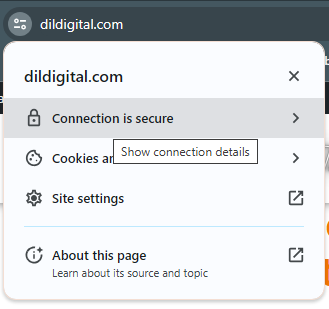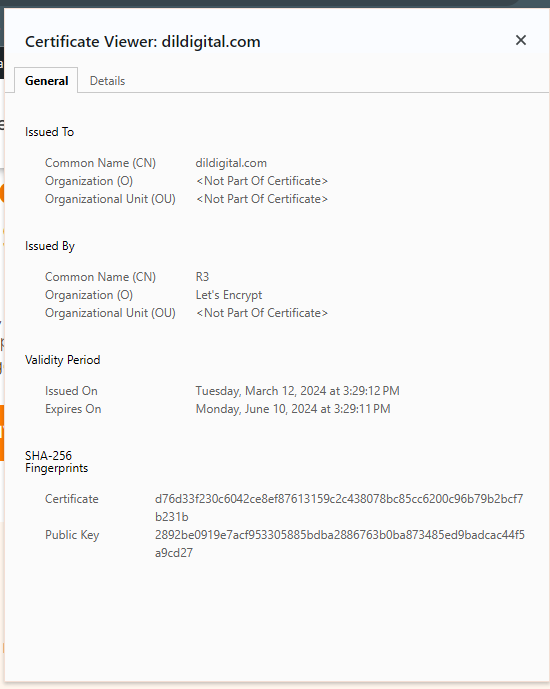In today’s digitally interconnected world, ensuring the security and trustworthiness of your website is paramount. One of the most effective tools in achieving this is through the implementation of SSL (Secure Sockets Layer) certificates.
In this article, we will talk about what technical SEO issue can you solve with an SSL certificate. Let’s dive into the article.
In this post, we cover...
ToggleHere Are The 3 Things You Can Solve With An SSL Certificate:
- Boosting site security
- SEO health
- User trust
Yep, that’s it. Article’s over!
Just kidding… It’s much more complicated than that.

Implementing an SSL certificate significantly enhances site security by encrypting data, which boosts search engine rankings and overall SEO health.
Additionally, an SSL certificate increases user trust by displaying secure connection indicators, such as the padlock icon in the browser address bar.
So let’s talk about this issues more in details.
Boosting Site Security with SSL Certificates
Encryption of Data Transmission
SSL certificates encrypt the data transmitted between a user’s browser and the web server, making it unreadable to anyone intercepting the information. This encryption significantly reduces the risk of data breaches and unauthorized access to sensitive information.
Protection Against Data Breaches
Websites without SSL certificates are vulnerable to attacks such as man-in-the-middle attacks, where hackers intercept communication between the user and the server to steal data. By implementing SSL certificates, websites create a secure connection that safeguards against such breaches, enhancing overall site security.
Improving SEO Health
Google’s Emphasis on HTTPS
Google has been actively encouraging website owners to switch to HTTPS by labeling non-secure sites in Chrome browsers and considering HTTPS as a ranking signal.
By migrating to HTTPS with SSL certificates, websites not only improve their security but also align with Google’s recommendations, enhancing their SEO health.
Enhancing User Trust
Visual Cues of Trustworthiness
SSL certificates provide visual cues to users, such as a padlock icon in the browser’s address bar and the “https://” prefix, indicating a secure connection. These visual indicators instill confidence in users, assuring them that their data is protected, thereby fostering trust in the website.
Mitigating Security Risks for Users
By securing the connection between the user and the website, SSL certificates mitigate the risk of users falling victim to phishing attacks and other security threats. Websites that prioritize user security with SSL certificates are more likely to attract and retain visitors, ultimately leading to improved user trust and loyalty.
What is SSL Certificate?
An SSL (Secure Sockets Layer) certificate is a digital certificate that authenticates a website’s identity and establishes an encrypted connection between the server and the user’s browser.


This encryption ensures that any data transmitted, such as credit card information or login credentials, remains secure and private.
Purpose and Functions of SSL Certificates
SSL certificates serve two main functions:
- Authentication: They confirm the legitimacy of a website, helping users verify that the site is what it claims to be.
- Encryption: They protect data in transit from being intercepted or tampered with by encrypting the communication between a user’s browser and the website.
Importance of SSL Certificates
Implementing SSL is crucial for any website handling sensitive data. It not only protects data but also boosts trust with users and enhances search engine rankings, as search engines favor secure websites.

The visual indication of a secure connection, typically a padlock icon, reassures users that their data is safe, encouraging more interactions and transactions online.
How SSL Certificates Work
The process of how SSL certificates secure data is called an SSL handshake, and it occurs behind the scenes without interrupting the user’s experience. Here’s a simplified overview:
- Key Exchange: The user’s browser and the website’s server establish a secure connection by creating and exchanging keys and encryption methods.
- Data Transfer: Once a secure connection is established, data transfer occurs over this encrypted link.
Types of SSL Certificates
There are several types of SSL certificates, each designed for different use cases:
- Domain Validated (DV) Certificates: These certificates provide a basic level of security and are usually issued quickly. They verify that the applicant controls the domain.
- Organization Validated (OV) Certificates: OV certificates include the verification of the business that owns the domain, providing a higher level of security.
- Extended Validation (EV) Certificates: These provide the highest level of security and trust. They verify the domain ownership as well as the organization’s identity and legal existence.
SSL Certificates and Site Speed
While SSL encryption adds an additional layer of security, it can also impact site speed to some extent.
However, with advancements in SSL technology and optimization techniques such as HTTP/2 and TLS 1.3, the impact on site speed is minimal, ensuring a seamless user experience.

And also if you have website and you want to grow traffic fast in 30 days then check out our guide 30 Steps to Increase Your SEO Traffic in 30 Days.
What does an SSL certificate prove?
An SSL certificate proves that the secure connection to a website is authenticated and encrypted, ensuring that the entity operating the website has been verified according to the level of validation provided by the certificate.
It establishes trust by confirming that a website is legitimate and that user data, such as personal information and credit card numbers, will be transmitted securely.
Is it good to have SSL certificate?
Yes, it is highly beneficial to have an SSL certificate for several reasons:
- Enhanced Security: SSL certificates encrypt the data transferred between a user’s browser and the server, making it difficult for hackers to intercept or tamper with the information.
- Increased Trust: Websites with SSL certificates display a padlock icon in the browser’s address bar, signaling to users that their connection is secure. This can increase user confidence and trust, encouraging more interactions and transactions.
- SEO Benefits: Search engines favor secure websites. Google, for example, has explicitly stated that HTTPS (enabled by SSL certificates) is a ranking factor, which can help improve a site’s search engine ranking.
- Compliance: Having an SSL certificate is also essential for compliance with certain privacy policies and regulations, such as PCI-DSS, which requires encryption for payment card information on e-commerce sites.
Overall, having an SSL certificate is crucial for protecting sensitive information, building user trust, and improving website visibility and compliance.
What is self signed SSL certificate
A self-signed SSL certificate is one that is created and signed by the entity using it, rather than by a trusted Certificate Authority (CA). These certificates are free and easy to generate, making them ideal for testing environments and internal applications where external trust is not required.
However, because they lack third-party verification, browsers typically flag them as untrustworthy, often displaying security warnings to users.
While they provide the same level of encryption as other SSL certificates, the absence of a recognized CA means they are generally not suitable for public-facing websites.
What is SSL certificate full form
SSL stands for Secure Sockets Layer.
Last Thought
In conclusion, SSL certificates play a pivotal role in addressing various technical SEO issues while boosting site security, rankings, SEO health, and user trust.
By encrypting data transmission, improving SEO performance, enhancing user trust, and resolving common technical issues, SSL certificates are indispensable for modern websites.
As the digital landscape evolves, implementing SSL certificates will remain essential for maintaining a secure and trustworthy online presence.



